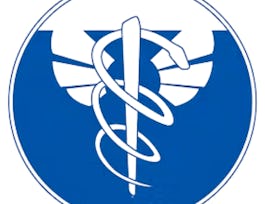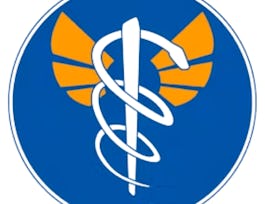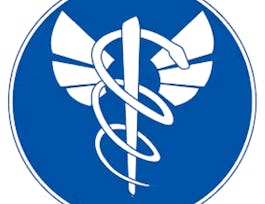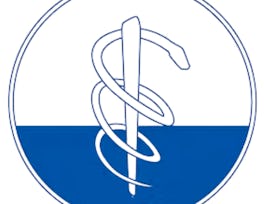In this course, you will develop the knowledge and skills to assess and stabilize certain types of patients for transport. By the end of this course, you will be able to: (1) Identify the signs and symptoms associated with a patient in shock, to describe the major categories of shock, to assess a patient with signs of shock and formulate a plan for treatment to stabilize the patient for transport, (2) Identify a patient in cardiac arrest and to describe the components of high performance CPR including placement of an AED, components of quality chest compressions, and options for oxygenation, (3) Identify a patient with under the influence of a drug of abuse or a toxicologic ingestion, assess a patient with a potential or known ingestion, and to formulate a plan for treatment and stabilization for transport including that of a violent patient, (4) Identify the symptoms associated with the most common environmental emergencies including hypothermia, hyperthermia, lightning strike and drowning, to assess patients with an environmental emergency and to describe initial treatment and stabilization for transportation and (5) Understanding your patient's story as well as to think critically about the complaint and symptoms associated with the gastrointestinal track, renal system, and the reproductive system.


Medical Emergencies: CPR, Toxicology, and Wilderness
This course is part of Become an EMT Specialization
Taught in English
Some content may not be translated



Instructors: Angela Wright, MD
27,559 already enrolled
Included with 
Course
(473 reviews)
97%
Details to know

Add to your LinkedIn profile
4 quizzes
Course
(473 reviews)
97%
See how employees at top companies are mastering in-demand skills

Build your subject-matter expertise
- Learn new concepts from industry experts
- Gain a foundational understanding of a subject or tool
- Develop job-relevant skills with hands-on projects
- Earn a shareable career certificate


Earn a career certificate
Add this credential to your LinkedIn profile, resume, or CV
Share it on social media and in your performance review

There are 4 modules in this course
In this module you will be learning about states of shock and the principles of resuscitation. Unlike our common use of the word shock referring to a mental state of feeling overwhelmed or alarmed, shock is a state of crisis within the body, involving one or more of the organ systems. If left uncorrected, shock can lead to death. The other topic, resuscitation, will cover the principles of treating and reversing shock, and most importantly, the treatment of cardiac arrest. We will discuss the latest scientific research and best practices of cardiac arrest resuscitation.
What's included
15 videos6 readings1 quiz
In this module we are going to learn about poisonings, or toxicologic ingestions. There is a whole field of medicine dedicated to the study of how the thing we ingestion, usually accidentally or in an attempt of self-harm, impact our bodies. This field is called toxicology. A poison is any substance that impairs health or causes death. A toxin is a drug or substance that is poisonous to a human, and will cause an adverse event, maybe even death. An antidote is a substance that will neutralize the effect of the poison or toxin. With an understanding of the basic terminology, we can further explore the most common poisons you will encounter in the field, how they affect the body, and how we treat these patients.
What's included
11 videos4 readings1 quiz
In this module you will learn how environmental emergencies are caused when the body’s physiological functions are disrupted by the patient’s natural surroundings. Many of the body’s functions only function properly at a normal temperature, so a change in the body’s temperature can cause them to fail. Some examples of environmental emergencies include cold or hot temperature changes, illness and injuries caused by other animals, high altitude illnesses and injuries or illness related to water such as drowning.
What's included
9 videos4 readings1 quiz
In this module we will capture topics an EMT might come across that don’t fit into the sections so far. The important “other” things that can cause patients problems. The role of an EMT is as an advocate for your patient to provide the best care possible. Part of that is taking the time to understand your patient’s story as well as to think critically about the complaint especially if difficult to diagnose. Also, we will focus of problems in the abdomen involving the gastrointestinal track, renal system and reproductive system.
What's included
10 videos6 readings1 quiz
Instructors

Offered by
Recommended if you're interested in Patient Care

University of Colorado System

University of Colorado System

University of Colorado System

University of Colorado System
Why people choose Coursera for their career




Learner reviews
Showing 3 of 473
473 reviews
- 5 stars
82.48%
- 4 stars
14.13%
- 3 stars
2.53%
- 2 stars
0.21%
- 1 star
0.63%
New to Patient Care? Start here.

Open new doors with Coursera Plus
Unlimited access to 7,000+ world-class courses, hands-on projects, and job-ready certificate programs - all included in your subscription
Advance your career with an online degree
Earn a degree from world-class universities - 100% online
Join over 3,400 global companies that choose Coursera for Business
Upskill your employees to excel in the digital economy
Frequently asked questions
Access to lectures and assignments depends on your type of enrollment. If you take a course in audit mode, you will be able to see most course materials for free. To access graded assignments and to earn a Certificate, you will need to purchase the Certificate experience, during or after your audit. If you don't see the audit option:
The course may not offer an audit option. You can try a Free Trial instead, or apply for Financial Aid.
The course may offer 'Full Course, No Certificate' instead. This option lets you see all course materials, submit required assessments, and get a final grade. This also means that you will not be able to purchase a Certificate experience.
When you enroll in the course, you get access to all of the courses in the Specialization, and you earn a certificate when you complete the work. Your electronic Certificate will be added to your Accomplishments page - from there, you can print your Certificate or add it to your LinkedIn profile. If you only want to read and view the course content, you can audit the course for free.
If you subscribed, you get a 7-day free trial during which you can cancel at no penalty. After that, we don’t give refunds, but you can cancel your subscription at any time. See our full refund policy.


